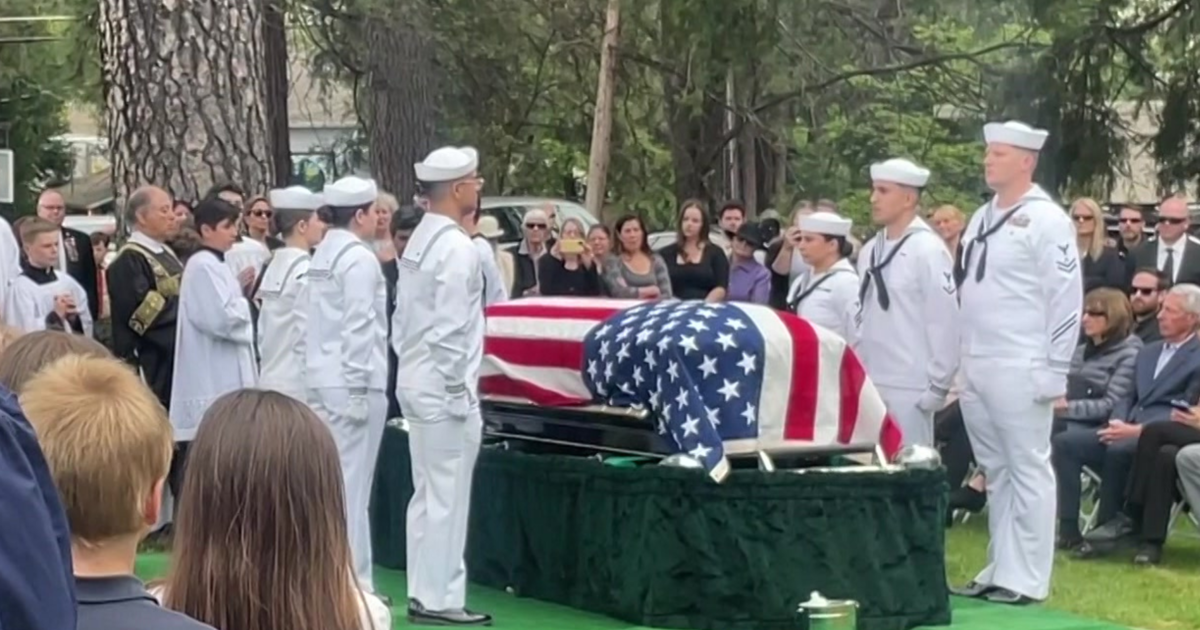Orlando Shooter Pledged Loyalty To Random, Conflicting Organizations
WASHINGTON (AP) - The Orlando gunman professed allegiance during the attack on a gay nightclub to the leader of the Islamic State militants, even as he called the Boston Marathon bombers, who had nothing to do with the extremist group, his homeboys. Before that, the FBI said, he claimed family connections to al-Qaida and boasted of ties to Hezbollah, organizations deeply at odds with the Islamic State extremists.
FBI Director James Comey said those statements add to the confusion about why Omar Mateen gunned down 49 people inside the club. But such conflicting, jumbled loyalties aren't uncommon among terror suspects in the United States.
RELATED: Pastor Stands By Anti-Gay Sermon As Christian Community Condemns Him
Those mixed allegiances suggest that to some would-be jihadists, a general ideology of violent extremism is more important than the tenets of any particular group.
"Particularly with the lone wolves, they're pretty permissive and promiscuous. They're attaching themselves to whatever happens to be hot and sexy on that day, but they don't seem to have clearly delineated thoughts on geopolitics and the jihadist movement," said Will McCants, an Islamic State expert at the Brookings Institution.
In the last year, several men who committed violence or attempted to under the purported mantle of the Islamic State group were also found to have derived inspiration from other sources and had often been absorbing extremist ideologies well before IS emerged as a brand-name terror organization with its self-declared caliphate in 2014.
RELATED: Sacramento Baptist Preacher Praises Orlando Gay Nightclub Attack
Elton Simpson, who last May traveled to Garland, Texas, with plans to shoot up a Prophet Mohammed cartoon contest on behalf of the Islamic State group, had been convicted in 2011 on a false statement charge arising from his plans to travel to Somalia, the stronghold of al-Shabab, an al-Qaida militant group.
Syed Rizwan Farook, along with his wife, pledged allegiance to the Islamic State militants before a December attack in San Bernardino, California, that left 14 dead. Investigators who dug into his past found that he had been discussing radical Islamic ideology as long ago as 2007 and was known to be interested in the preaching of radical cleric Anwar al-Awlaki, who was killed in a 2011 drone strike.
Those groups do have important distinctions, even if the differences are sometimes lost on followers or are mostly significant to academics.
The Islamic State group, which enforces its own radical interpretation of Islamic law, is a Sunni Muslim group that controls vast territory stretching across northern Syria, through much of northern and western Iraq as part of its self-declared caliphate. The Nusra Front is al-Qaida's branch in Syria, and though it also has many foreign jihadists among its Sunni ranks, it split from IS more than two years ago. Hezbollah, another group to which Mateen voiced loyalty, is a Shiite Muslim organization whose ideology is different from the Salafi jihadi brand that Nusra Front and the Islamic State espouse.
Yet for Americans, the Islamic State militants have the strongest public brand, and their willingness to accept supporters and followers without the training and vetting demanded of al-Qaida recruits has only added to their appeal. Deep familiarity with their particular beliefs is not a prerequisite for membership.
"I think there are going to be cases where individuals are just drawn to ISIS because they're the biggest game in town," said Seamus Hughes, the deputy director of the Program on Extremism at George Washington University, using another acronym for the Islamic State.
A report the George Washington program released this month found that 88 people had been charged with IS-related offenses since March 2014. About 38 percent are converts to Islam, and roughly 44 percent were accused of traveling or attempting to travel abroad, the report said.
McCants, of Brookings, said there's a long history of young men being drawn to causes they don't fully understand. Many of the fighters who joined the First Crusade nearly 1,000 years ago were illiterate and hadn't read their own scripture before rushing to take up the movement, he said.
"Few things in the West today are as countercultural as ISIS," he said. "When ISIS is no longer the cool thing, it will be another violent group that will appeal."
Copyright 2016 The Associated Press.



